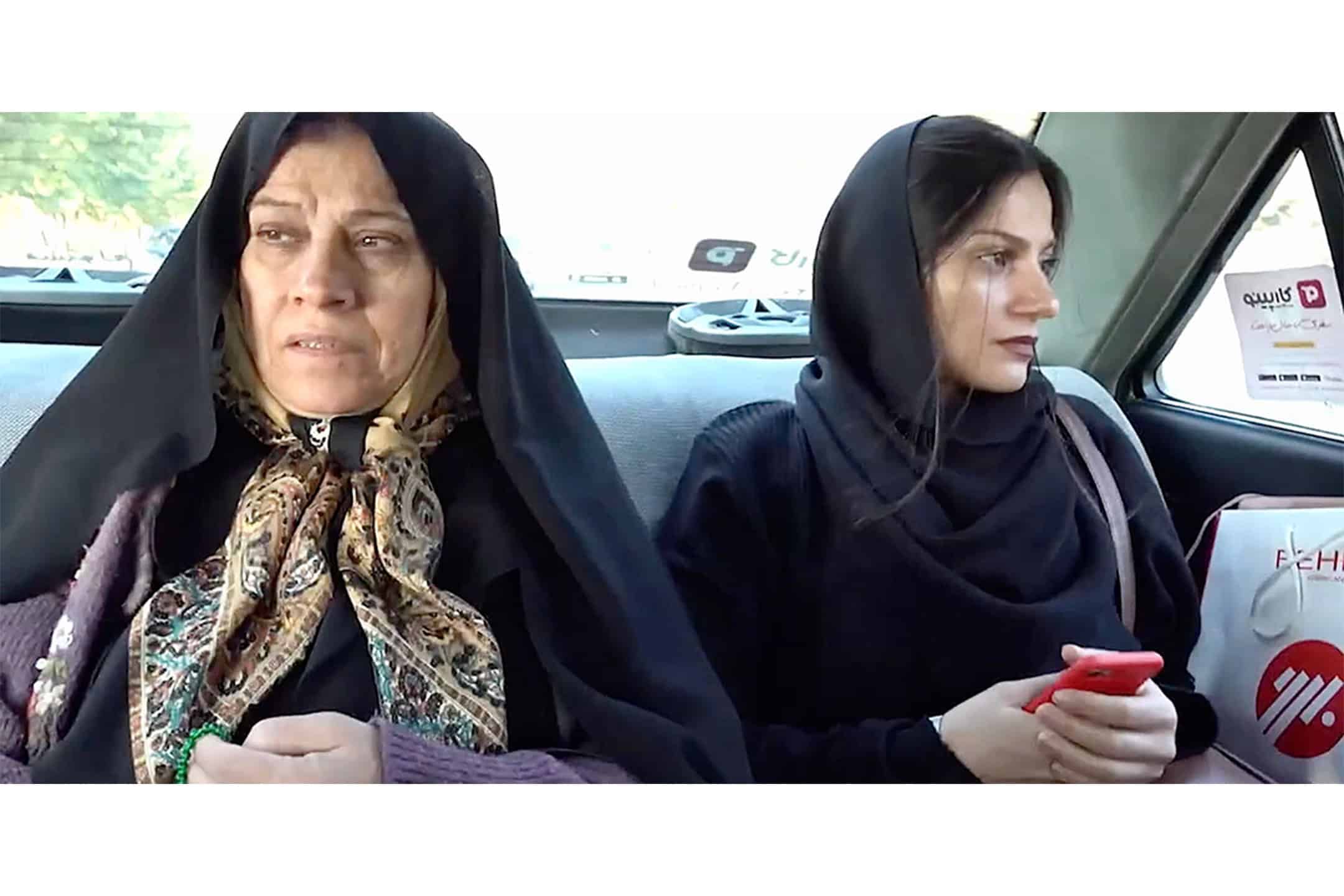A Sisters’ Tale opens with a striking shot of Iranian singer Nasreen Amini bathed in red light from a lamp on her nightstand. Her back is turned to us, and the glow of her phone illuminates her face. Her haunting song reverberates through the darkened bedroom.
Since the Iranian Revolution of 1979, women have been forbidden from singing in public, silencing the voices of aspiring artists who are women like Nasreen, director Leila Amini’s sister. Despite these restrictions, Nasreen decides to pursue her dream, navigating the complex repercussions of defying both legal and social norms imposed by a patriarchal government and society.
The documentary is filmed mostly in private settings: within the walls of Nasreen’s home, inside her car, or on the streets of Tehran in the dead of night. Through Leila’s close proximity to Nasreen, the audience is drawn into Nasreen’s personal journey — a quest for a life beyond marriage and motherhood. This close perspective allows viewers to fully immerse themselves into the guarded enclosure of Nasreen’s private life.
Over the seven years of filming A Sisters’ Tale, Nasreen’s dream to become a singer evolves from a distant hope into a tangible reality. In a loveless marriage with a traditional husband who ridicules her ambitions behind her back and is often absent at home, Nasreen comes to realize that pursuing her dream is essential after the birth of her daughter.
“What about my passion for singing?” Nasreen asked Leila. “And having my own concerts? Just two kids… Is this what I should teach to my kids? ‘Forget about your dreams?’ ‘Forget about yourself?’”
Leila captures Nasreen’s voice during her singing lessons and when she performs a song in an underground recording studio, but it is in Nasreen’s own home that the film feels most raw. She borrows money from her son, Hamid, for music lessons her husband refuses to fund and sings songs about true love and freedom while her daughter cries in the other room. The buildup of tension within Nasreen’s family is palpable, and she is acutely aware of the sacrifices required to diverge from the life that has been. Her family voices concern about her financial stability should she divorce her husband and the safety of pursuing a profession that is illegal for women.
We are constantly reminded of the camera’s presence. The screen shakes as Nasreen embraces Leila after securing a music producer. Leila voices her fear that the police driving next to Nasreen might notice her lack of head covering. At one point, Nasreen pleads with Leila to stop recording when she begins to cry while discussing her marital issues.
A Sisters’ Tale is not only a story about Nasreen, but also about Leila. Nasreen’s journey to becoming a singer and Leila’s pursuit to become a director are deeply intertwined. The film itself, which depicts Nasreen breaking Iranian laws, embodies the risks both women take in pursuit of their dreams. Their sacrifice highlights the immense courage of Nasreen’s story, confronting misogynistic legislation and restrictive social norms.
The film closes with a poignant shot of Nasreen on a hill, gazing out at the city before her. Though her back is turned, the daytime setting symbolizes the future and the possibilities that have opened up for her through her courageous step toward her dream. A Sisters’ Tale is not only a labour of love from one sister to another, but also a profound tribute from these two sisters to all the women of Iran.



No comments to display.